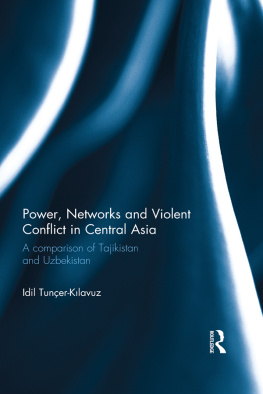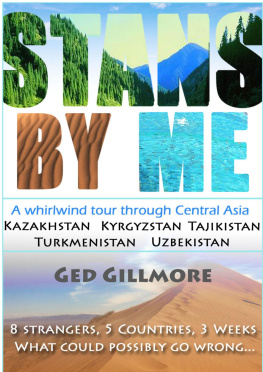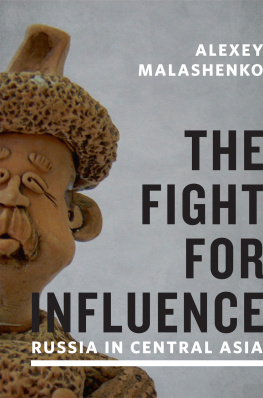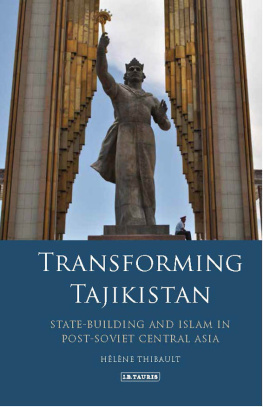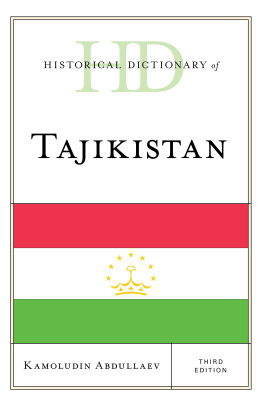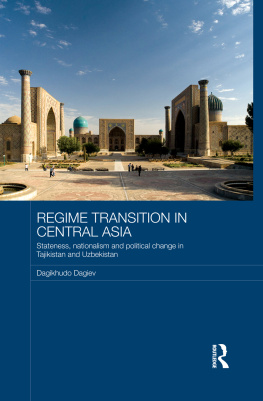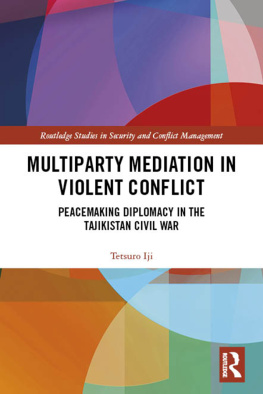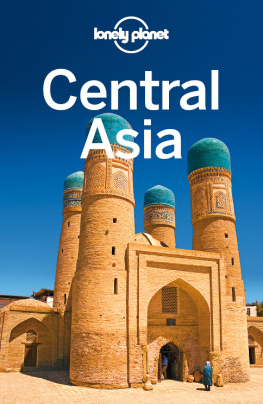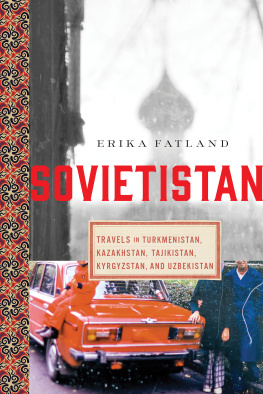Power, Networks and Violent Conflict in Central Asia
When the five Central Asian republics gained independence from the Soviet Union in 1991, expectations of violent conflict were widespread. Indeed, the country of Tajikistan suffered a 5-year civil war from 1992 to 1997. The factors that the literature on civil wars in general and on the Tajikistan civil war in particular cites as the causes of war were also present in Uzbekistanbut no similar conflict occurred in this country.
Examining this empirical puzzle by isolating the crucial factors that caused war to break out in Tajikistan but not Uzbekistan, this book applies a powerful comparative approach to the broader question of why civil wars occur. Based on fieldwork in both countries, it challenges many common explanations of civil war both generally and in Tajikistan in particular. This includes highlighting the importance of elites power perceptions, which have their origins in the interaction of structural-, process-, and network-related variables. Without examining these interactions, macro-structural explanations alone cannot explain the occurrence of civil war in one country and its absence in another.
Applying the insights of bargaining theories of war from the literature on international relations to the civil war in Tajikistan, this book will be of interest to students of violent conflict, civil wars, Central Asia, and Asian Politics.
Idil Tuner-Klavuz is Assistant Professor of Comparative Politics in the Department of Political Science in Istanbul Medeniyet University. She received her PhD from Indiana University in 2007. She has articles published in journals including Europe-Asia Studies, Nationalities Papers and Central Asian Survey. Her research interests include identity, conflict, violent conflict, nationalism, ethnicity, regime changes, democratization, and social movements.
Routledge Advances in Central Asian Studies
Oil, Transition and Security in Central Asia
Edited by Sally N. Cummings
The European Union and Central Asia
Edited by Alexander Warkotsch
Politics, Identity and Education in Central Asia
Edited by Pinar Akcali and Cennet Engin-Demir
Regime Transition in Central Asia
Stateness, nationalism and political change in Tajikistan and Uzbekistan
Dagikhudo Dagiev
Power, Networks and Violent Conflict in Central Asia
A comparison of Tajikistan and Uzbekistan
Idil Tuner-Klavuz
Power, Networks and Violent Conflict in Central Asia
A comparison of Tajikistan and Uzbekistan
Idil Tuner-Klavuz
First published 2014
by Routledge
2 Park Square, Milton Park, Abingdon, Oxon OX14 4RN
and by Routledge
711 Third Avenue, New York, NY 10017
Routledge is an imprint of the Taylor & Francis Group, an informa business
2014 Idil Tuner-Klavuz
The right of Idil Tuner-Klavuz to be identified as author of this work has been asserted by him/her in accordance with sections 77 and 78 of the Copyright, Designs and Patents Act 1988.
All rights reserved. No part of this book may be reprinted or reproduced or utilised in any form or by any electronic, mechanical, or other means, now known or hereafter invented, including photocopying and recording, or in any information storage or retrieval system, without permission in writing from the publishers.
Trademark notice: Product or corporate names may be trademarks or registered trademarks, and are used only for identification and explanation without intent to infringe.
British Library Cataloguing in Publication Data
A catalogue record for this book is available from the British Library
Library of Congress Cataloging in Publication Data
Kilavuz, Idil Tuner.
Power, networks and violent conflict in Central Asia : a comparison of Tajikistan and Uzbekistan / Idil Tuner Kilavuz.
pages cm. -- (Routledge advances in Central Asian studies ; 5)
Includes bibliographical references and index.
1. Political violence--Tajikistan. 2. Civil war--Tajikistan. 3. Tajikistan--History--Civil War, 19921994. 4. Insurgency--Uzbekistan. 5. Civil war--Uzbekistan. 6. Peace-building--Uzbekistan. I. Title.
HN670.25.Z9V555 2014
303.609586--dc23
2013046944
ISBN: 978-0-415-74241-2 (hbk)
ISBN: 978-1-315-81464-3 (ebk)
Typeset in Times New Roman
by Taylor & Francis Books
Dedicated to my parents Sema and Aygn Tuner
Contents
I have to thank a lot of people for the help, support, and encouragement that they gave so generously during the planning, research, and writing stages of this book. Since these amount to hundreds of people altogether, I unfortunately cannot name everyone. In any case I am, and always will be, truly grateful for their help.
First, I would like to thank William Fierman. He served as my advisor throughout my graduate studies at Indiana University (IU) and was always there to help. He was very generous in sharing his knowledge of Central Asia and its people. His support during my research in Uzbekistan was extremely significant. He carefully read these chapters, and his invaluable comments helped me to clarify my arguments. I am also grateful to Nazif Shahrani. I learned a lot from him during my graduate studies at IU, and his comments greatly benefited this book. The input of Henry Hale during my graduate studies, and during this project, was enormous. His invaluable insights, comments, and ideas helped this book a lot.
During my field research in Uzbekistan and Tajikistan, I greatly benefited from the contributions of many people in the region. It is very unfortunate that I cannot name them, but I am sure they understand that I acknowledge them and their support. I owe many thanks to friends and colleagues in various universities, institutes, and research centers in Uzbekistan and Tajikistan. They had long discussions with me about their countries; helped me to better understand the politics and society of the region; helped me arrange interviews with political leaders; hosted me in their homes (and made me feel at home); helped me during my journeys and through various difficulties in the field; showed concern for me when I was late in returning from an interview or visiting a place they considered dangerous. I consider them my families in Uzbekistan and Tajikistan and will always be indebted to them. I am also grateful to all those who assisted me in Uzbekistan and Tajikistanfor example by helping me arrange interviews or traveling with me to difficult, distant regions of their countries.
I am grateful to IU graduate student, David Bell, for helping to edit this book. Thanks also to Emily Kara. She too helped edit this book, for which I owe her special thanks. This book was in a very different shape before Emily and David contributed their superb editorial skills.
I finished writing this book at The Vincent and Elinor Ostrom Workshop in Political Theory and Policy Analysis in Indiana University. I am thankful to co-directors Burney Fischer and Tom Evans and the staff of the Workshop for providing me with the space and conditions in which I could complete the book.
In the book I have used material from my previously published articles in Europe-Asia Studies, Nationalities Papers

